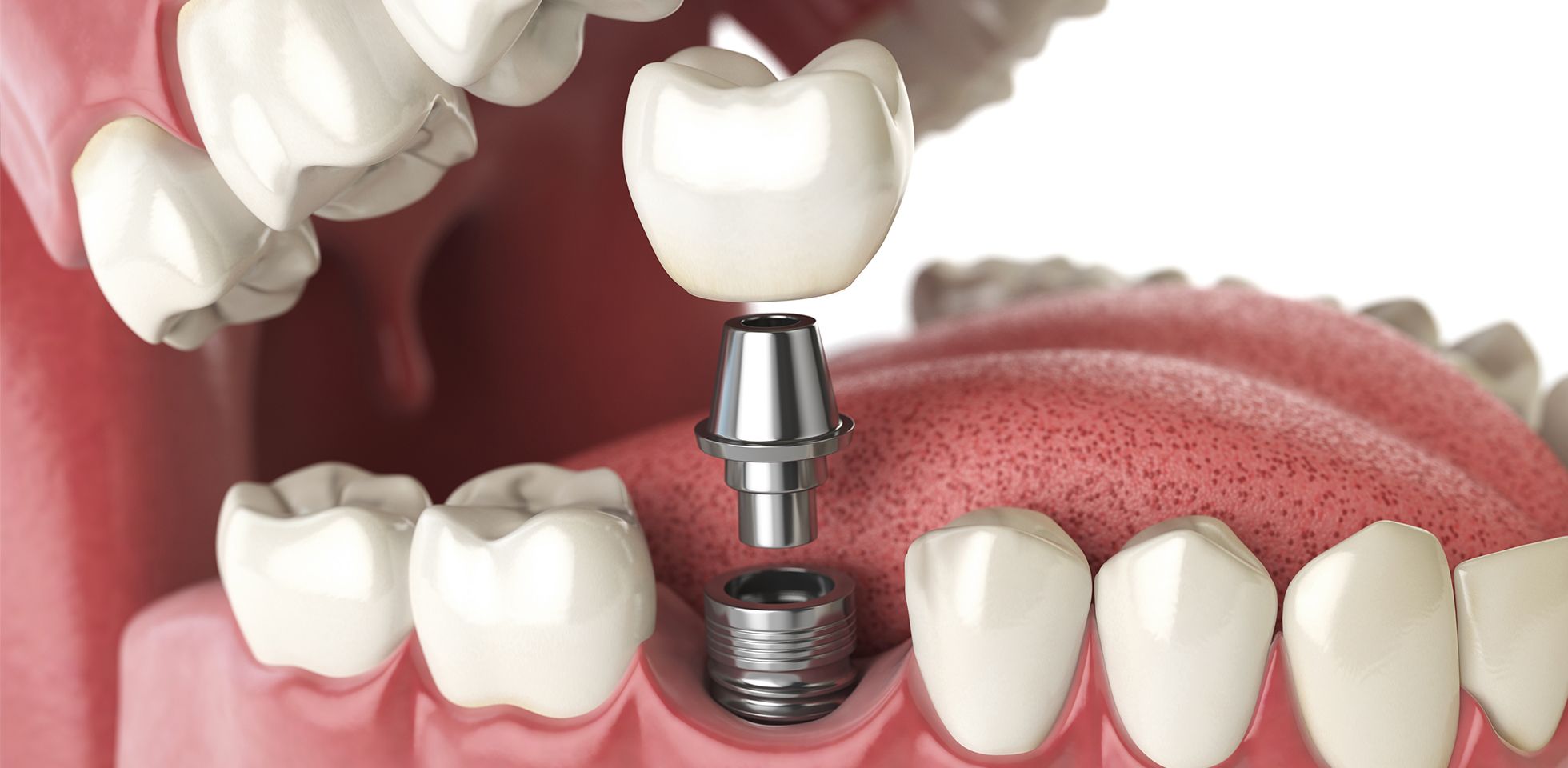Of all the currently available treatment options for replacing missing teeth, dental implants offer the strongest, longest lasting, and most like a natural tooth option. They can be the most expensive one up front, but offer potential decades worth of value. For many, the slippage of dentures, the removal of healthy tooth tissue to install a bridge, or the need to perform special upkeep outside an established routine makes dental implants an attractive option.
When considering any procedure or treatment, consult with your dentist to see what option works best for you and for your budget. Be sure to get into contact with your insurance to see what they do and do not cover. Getting a dental implant is a big decision and you should arm yourself with as much research and knowledge as you can find.
The Value of a Dental Implant
If you have multiple teeth missing and have enough bone structure in your jawbone to secure the implant, are willing to commit to a months-long process and have a healthy mouth, then a dental implant is a good option for you to replace missing or lost teeth. Dental implants are not for every patient, so be sure to speak with your dentist to determine what treatment plan is best for you and your jaw.
Unlike removable dentures or bridgework, a dental implant offers a very permanent solution to replacing missing teeth. They also protect your jaw bone and your healthy teeth, as they fuse permanently to the jaw, preserving the existing tissue and stimulating more bone growth. They also do not require reducing the amount of healthy tooth on surrounding teeth like how bridgework requires. Despite the potential need for multiple office visits, a dental implant is the best solution to fully replacing one or more missing or lost teeth.
If you have one or multiple missing teeth or have trouble with dentures that slip or are not able to eat what you want because of pain chewing due to missing teeth, a dental implant is worth the research. According to WebMd.com, dental implants come with a ninety-eight percent success rate. If you take care of your oral health, an implant can last your lifetime. An average bridge or denture may need to be replaced as often as every five to ten years, which may require a greater investment of money and time in the long run.
Ignoring a missing tooth for too long can actually result in bone loss, severely impacting your bite and possibly causing pain when chewing. It can also result in wearing down and damaging your other healthy teeth. A dental implant is so like a natural tooth that you may even forget it is there. Because it is anchored into the jaw, you won’t experience any slippage during eating or talking, and you’ll never have to remove dentures for cleaning or use adhesives to keep them in place. A dental implant is like having your missing tooth back.
A Typical Dental Implant Treatment Plan
Now let us take a look at what a typical treatment plan is for a dental implant. First, your dentist will assess whether or not your jaw has enough bone structure to support the implant, or whether your jaw is too soft for the implant. If so, you may require a visit to have a bone grafting done.
A bone graft is where bone tissue is taken from one part of the body – like the hip – and grafted onto another part. This strengthens the graft site and if this is needed, will require you spend some months recovering and allowing your jawbone to grow before the implant can be placed.
The next step is to install the actual implant itself. The implant is a screw-like metal rod, generally made from aluminum. This is an outpatient surgery, and your anesthesia options include local anesthesia, sedation or general anesthesia. Speak with your doctor about what works best for you and be sure to mention any and all medications, supplements and over-the-counter drugs you may be taking. These all impact the safety and outcome of the surgery. Be sure to have somebody to take you home if you choose to go with a general anesthesia. Spend the rest of the day resting.
After the implant is placed, the abutment will be placed. The abutment is the part of the implant on which the crown will sit. Some cases the abutment can be placed at the same time as the implant. Next, you will have to spend several months healing and recovering, and letting the bone grow around the implant to secure in place before the crown can be placed, and the implant process finished.
For the restoration of a tooth and the return of your smile, authoritydental.org estimates that a single tooth implant can cost between $1,000 to $3,000, with the abutment and crown adding possibly $500 to $3000 dollars to the total cost of between $1,500 to $6,000. It is the price without the help of implant insurance or dental plans and includes the cost of surgery, and all other associated costs, like consultation and anesthesia. Your end cost may be higher or lower depending on the exact circumstances of your treatment plan. While these costs seem high, you should still check with your dentist and your insurance to see what your actual expenses would be. This may significantly reduce the price of the procedure to more manageable levels.
If you need multiple teeth replaced, the price will increase to start at around $3,000 to an upwards of $30,000 or more. Replacing two to four teeth can cost between $6,000 to $10,000. Keep in mind that this is a lifetime investment in your oral health. You use your mouth every day to speak with your loved ones and to eat delicious food and drink. You’re not just paying for a new tooth, but a new ability to enjoy life.
When it comes to your overall health, it begins with your mouth. Poor oral health can lead to a whole slew of disease and conditions, so making sure you maintain good oral health is key to living a long and happy life.



